The Greek Political Diaspora in Communist Romania
Between 1946 and 1949, Greece suffered a crippling civil war between the USSR-sponsored communist guerrillas and Greek government forces.

Steliu Lambru, 20.07.2015, 14:18
Between 1946 and 1949, Greece suffered a crippling civil war between the USSR-sponsored communist guerrillas and Greek government forces. The confrontation started with an attack by communist rebels in the Yugoslav-Albanian border area. The communists wanted to topple the monarchy, which they deemed Fascist, in order to set up a socialist republic. However, the conflict between Stalin and Tito resulted in the defeat of the Greek communists, which turned to Moscow for support. Tito closed his borders with Greece, and the communist guerrillas were cut off from support. Albania, under Tito’s influence at the time, also denied the communists support. Until September 1949, the communist fighters either gave themselves up or crossed into Albania, most of them going on to other Soviet bloc and communist countries.
Romania became the favorite destination for these refugees. 200,000 Greek political asylum seekers got to socialist countries, and of them 11,500 to 12,000 ended up in Romania including the former fighters and their families. Romania got the largest number of children, around 5,700, starting with 1948, of a total of around 28,000 Greek children who were taken by their families to 7 communist states. The largest colony of Greek children was in Sinaia, between 1948 and 1953. In the hotels of that resort, 1,700 children resided, joined by a few thousand North Korean children who fled the war of 1950-1953.
Romania already had a population of Greeks settled over some time. When Romania fell into the Soviet sphere, it was a favorite destination of Yugoslavs and Albanians fleeing their country. Historian Radu Tudorancea, from the Nicolae Iorga History Institute in Bucharest, told us how the Greek communists were received in Romania.
Radu Tudorancea: “A part of the former Greek fighters who fled the country at the end of the civil war came to Romania. They got support from the authorities in Bucharest; the wounded got treatment, the others got support in order to adapt to the country and integrate into society. The fact that Romania already had a sizable Greek community eased the process, especially since, beginning in 1948, the pro-communist faction of the Greek community had managed, with support from the Romanian authorities, to take control of the community and form a new entity, called the Hellenic Patriotic Union. The few supporters of the royalist cause in Romania got sidelined.”
The Romanian communist government lavished generous support on the former communist fighters. The support was across the board, from living accommodations to medical care to stipends. As any other country taken over by the Soviets, Romania manipulated the public information on those people.
Here is Radu Tudorancea with details: “The Greek civil war was closely followed in Romania, and was written on extensively in the party newspapers. As expected, this took the form of an acid campaign, coordinated by the party, which leaned heavily towards the cause of the Greek communist ‘partisans’, as they were known, denigrating heavily the Anglo-American side and its role in the Greek civil war. Greek communist leader Nikos Zahariadis had sent to Romania as early as January 1948 one Lefteris Apostolou, which was dubbed representative of the so-called democratic government of Greece. He was a liaison with the Romanian authorities, channeled aid from the People’s Republic of Romania to the guerrillas, helping the wounded and preparing the colonies of Greek children that were to come to Romania. The Romanian authorities earmarked significant sums of money for migrant support from Greece. The financial support was secured through a sizable budget for the Greek Communist Party. For 1951 alone, $300,000 were secured, on top of regular expenses. These amounts only grew. In 1952, around $750,000 were earmarked for publishing houses, in addition to many other expenses. The steering committee of the Greek Communist Party was moved to Bucharest, and many in the leadership were given luxury houses in the top party neighborhood, in various secret villas.”
The Greek refugees never gave up on the struggle in their country. They believed their defeat to be temporary, and they were ready to go back and take up the fight once again, if the international situation became favorable. Romania became a base for Greek communist action, and they were trained by Greek ideologues with training in Moscow behind them.
Here is Radu Tudorancea once again: “Expecting a resumption of the struggle in Greece, the activists in Romania kept the former guerrillas in a state of readiness. In 1950, a school was set up in Breaza, a political school with teachers like Nikos Zahariadis and Vasilis Bartsiotas. That entity was supposed to train underground agents in Greece to support the communist cause. Between 1952 and 1955, over 120 such activists and agents were sent to Greece clandestinely, and many of them were seized by the Greek police.”
Stalin’s death and the end of Sovietization in Romania put an end to the Greek communist movement in the country. Once Romania and Greece normalized relations, the armed struggle effectively came to an end.






























